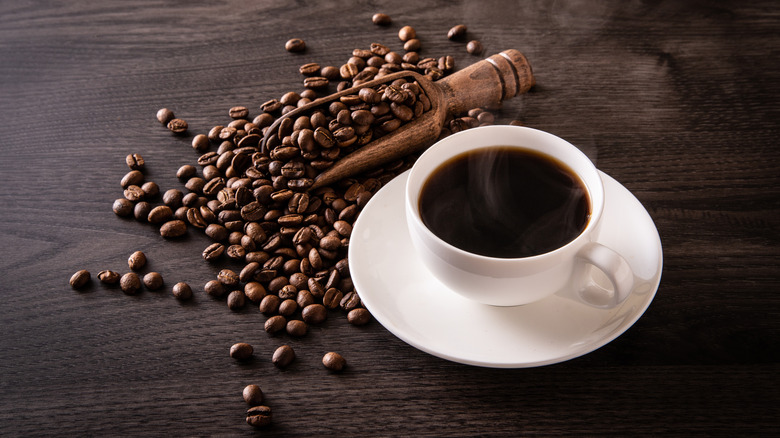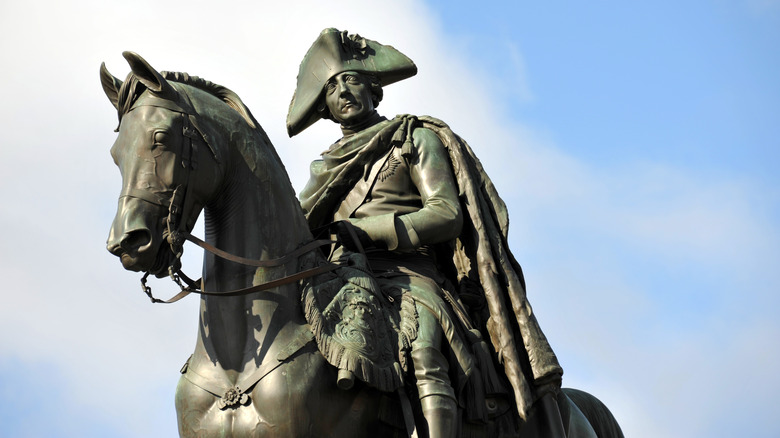The Real Reasons Coffee Was Banned In Prussia
Can you imagine if President Joe Biden issued an executive order banning coffee for most Americans? The withdrawal-induced outrage would dwarf anything we've seen in recent memory.
That's just what Frederick the Great of Prussia did back in the 1700s, which as William Harrison Ukers writes in his book "All About Coffee," was ostensibly to promote health among the general populous and vitality among soldiers. But in actuality, it was to line state coffers, protect the nation's beer industry, and control money flowing to foreign coffee merchants, according to the book "The World of Caffeine."
Before we go any further, grab your favorite caffeinated brew, and let's learn what the heck Prussia is.
According to Britannica, the former region in central and eastern Europe that would come to be a powerful German state traced its history back to pagan hunters and cattle breeders. In 1701, a German dynasty began the era of the Kingdom of Prussia, which included Frederick's rule from 1740 to 1786, according to Family Tree. However, after World War II, Britannica notes that the Allies abolished Prussia, which by then had been much-reduced.
Despite some pretty cool domestic policies — including legal and government reforms and more freedom of religion and the press, according to Biography — coffee put Frederick in a black mood and he waged a years-long campaign to limit its use.
A tale of two drugs
Frederick was worried about money flowing out of the country to pay for coffee imports, Weinberg and Bealer write in "The World of Caffeine." So in 1766, he gave the state a monopoly on imports of the bean and levied taxes, attempting to reserve coffee for the aristocracy and keep the "ruinous luxury" out of the hands of common folk.
While Frederick was a buzzkill when it came to caffeine, the same couldn't be said for him and alcohol. "Everybody is using coffee," he said in a 1777 proclamation. "If possible, this must be prevented. My people must drink beer."
Still, people jonesed for their cuppa, and like with America's wars on drugs, that demand proved too strong for Frederick's crackdown. He didn't give up though, creating a "royal monopoly" on coffee roasting in 1781, Weinberg and Bealer report. The well-to-do could get special licenses and buy beans from the king while the average person had to resort to the black market or use coffee substitutes like chicory.
To enforce his monopoly, Frederick employed retired soldiers to literally sniff around in the hopes they'd ferret out illicit coffee roasting operations. They were considered "so great a nuisance ... that they were called 'coffee-smellers' by the indigent people," Ukers writes in "All About Coffee." Sounds like the Prussian peasantry was pretty steamed.

